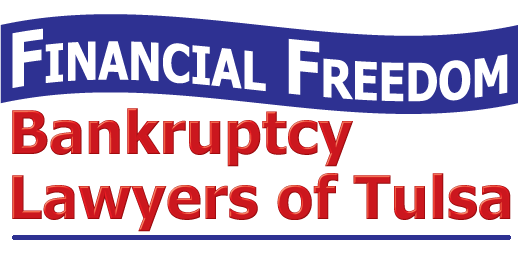Oklahoma Bankruptcy HelpOklahoma Bankruptcy Can Wipe Out Some Tax Debt
 When people come into an attorney’s office asking about bankruptcy relief, one of the most frequent questions asked is whether tax debt in Oklahoma can be discharged in bankruptcy.
When people come into an attorney’s office asking about bankruptcy relief, one of the most frequent questions asked is whether tax debt in Oklahoma can be discharged in bankruptcy.
Bankruptcy reform laws passed in 2005 have made it much more difficult for people to eliminate their legal obligation to repay tax debt in Tulsa, Oklahoma.
Most tax debt cannot be relieved in a bankruptcy filing. That being said, it is important to talk to an experienced Tulsa bankruptcy attorney about the facts surrounding your tax debt, because there are times that tax debt can be discharged.
Oklahoma Bankruptcy Facts Regarding Taxes
In order to have your tax debt discharged in a Chapter 7 liquidation, all of the following criteria must be met:
The tax debt must have been incurred at least three years before filing a request for personal bankruptcy. The three-year window of time begins with the date the tax returns were filed with a state government or the Internal Revenue Service (IRS).
This is true even if the filing is on an older year’s taxes. So if you wait until 2010 to file your taxes for 2005, and it turns out that you owe taxes for 2005, you may not request bankruptcy relief for those taxes until at least 2013. And you must have filed all of your returns in order to seek tax debt relief.
The taxes owed must be income taxes. Taxes such as employment taxes, payroll taxes or the like, do not qualify for tax debt relief in bankruptcy.
You must not have taken any action in your returns to evade taxes lawfully owed. If you lied or omitted income in your return in order to evade taxes, your tax debt will not qualify.
You must have filed the return that the tax debt is based on at least two years before the filing of the bankruptcy. And the tax must have been assessed at least 240 days before you file for bankruptcy. This is called the 240-day Rule. This time limit may be extended in certain circumstances.
Tax liens can impose special difficulties. The IRS and state governments have the option to sue delinquent debtors, which can create a tax lien against the debtor’s property. Once you have a tax lien in place on a property — even if the tax debt is discharged — the tax lien remains in place on the property, and must be paid when you sell the property.
Tax Refunds and Bankruptcy in Tulsa
Tax refunds are not yours to keep while you are in the middle of a bankruptcy. That means that if you are in a Chapter 13 reorganization plan, you must turn over all tax refunds to the bankruptcy trustee during the time your repayment plan is in place.
Once the discharge is issued, any tax refunds are yours to keep. Taxes pose special problems in bankruptcy. Seek the advice of a qualified Tulsa bankruptcy lawyer.
Free Bankruptcy Planning: Tulsa Bankruptcy Lawyer
To get the best possible outcome in your bankruptcy case, you will need to set expectations for yourself, and also understand your attorney’s expectations of you.
If you’re ready to file, contact a Tulsa bankruptcy attorney at the Freedom Financial Bankruptcy Lawyers of Tulsa as soon as possible.
To receive your free initial bankruptcy analysis, call the Freedom Financial Bankruptcy Lawyers of Tulsa today at (918) 786-9600.
Tags: tax debt in Oklahoma bankruptcy, tax issues in bankruptcy, Tulsa Oklahoma bankruptcy lawyers




